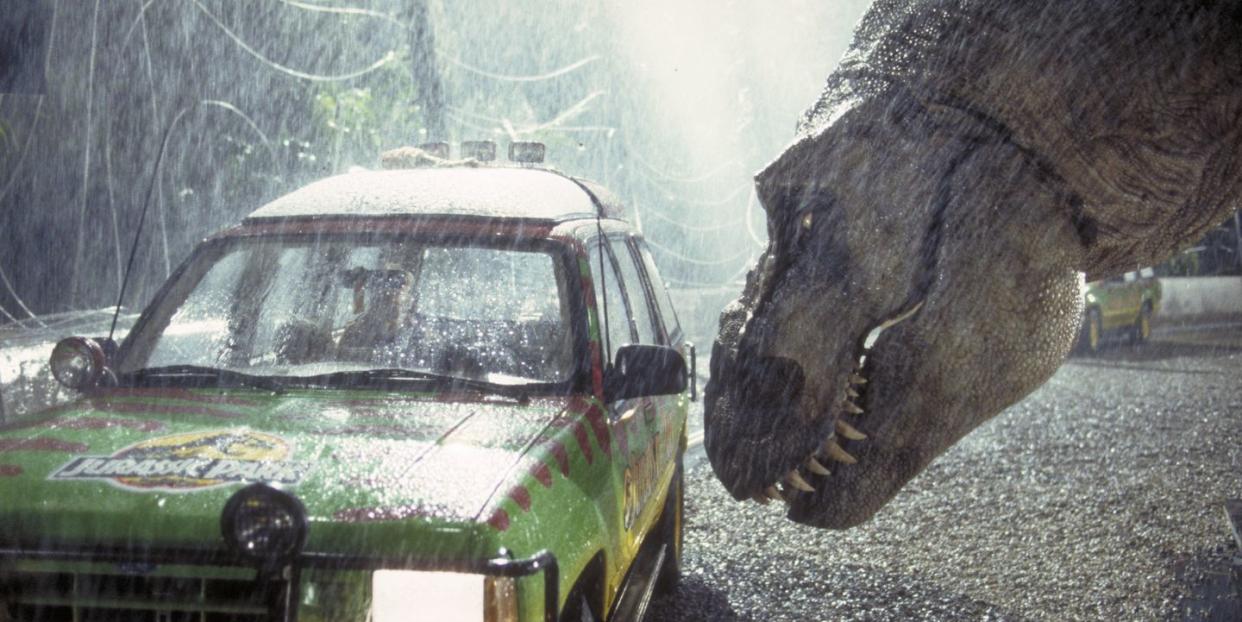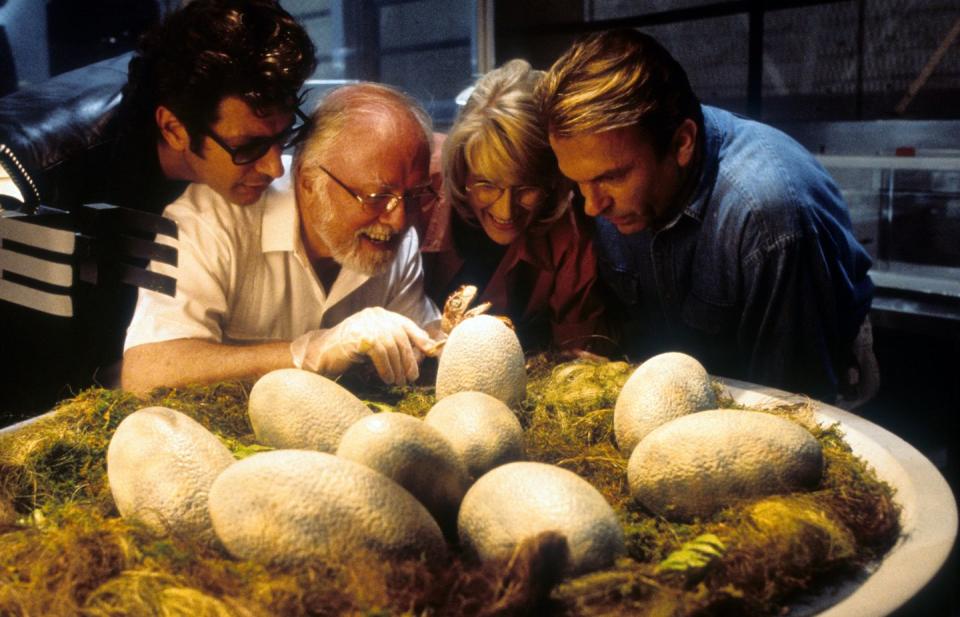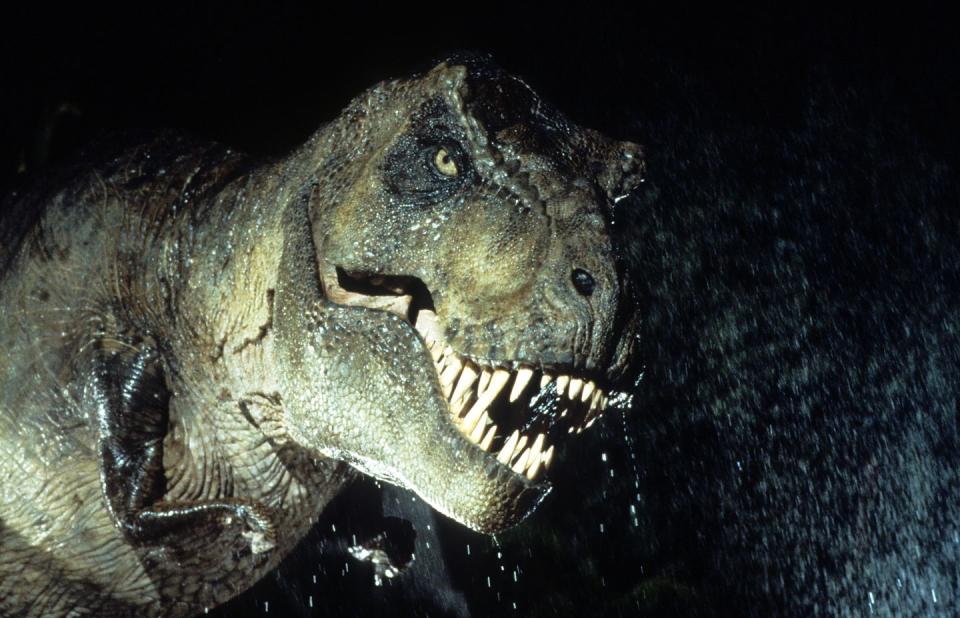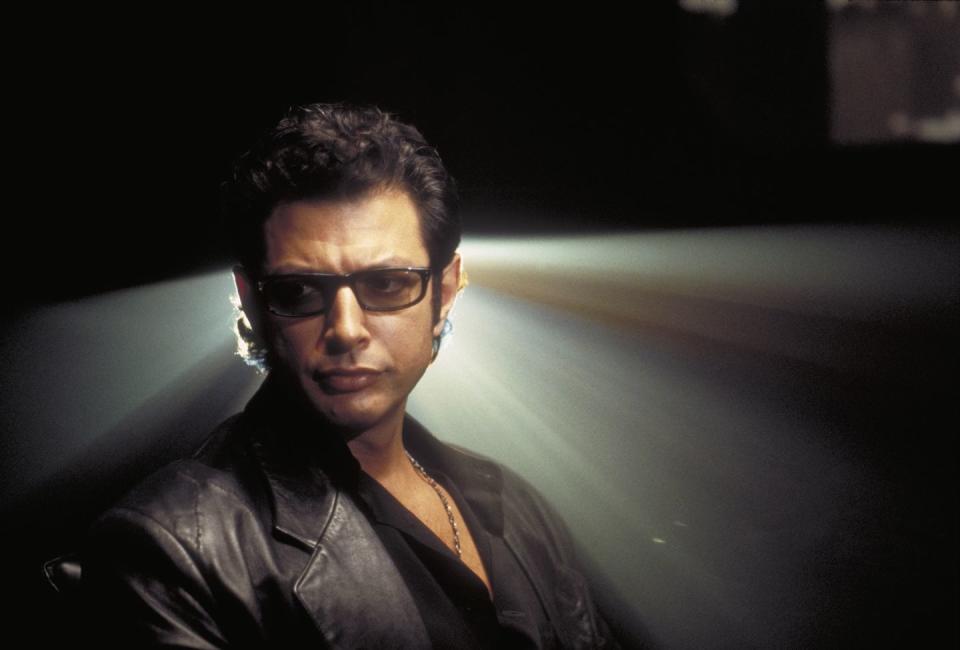We Can Build a Real Jurassic Park, Says Neuralink Cofounder

- Oops!Something went wrong.Please try again later.
Neuralink cofounder Max Hodak says we have the tech to build a real Jurassic Park within the next 15 years.
Even if we could make something like a genetically modified dinosaur, should we?
Making an ersatz almost-dinosaur invalidates a lot of the arguments in favor of reviving dinosaurs.
A cofounder of Neuralink—the brain implant startup that recently embedded a chip into a monkey’s brain, allowing the primate to play video games—has suggested we have the technology to build a real Jurassic Park. But in an upset, Elon Musk, the company’s most famous cofounder, wasn’t the one who made the attention-grabbing comments.
In a tweet, biomedical engineer Max Hodak wrote, “we could probably build jurassic park if we wanted to. wouldn’t be genetically authentic dinosaurs but 🤷🏻♂️. maybe 15 years of breeding + engineering to get super exotic novel species.”
He continued:
“Biodiversity (antifragility) is definitely valuable; conservation is important and makes sense. But why do we stop there? Why don’t we more intentionally try to generate novel diversity?”
Is Hodak right to suggest that not only could we build such a park, but also fill it with “super exotic novel” dinosaur species?

In Jurassic Park, Steven Speilberg’s 1993 smash film adaptation of Michael Crichton’s novel, dinosaurs are made by splicing genetic material found in fossilized amber with amphibian genes in order to make a complete genome for each species. And, 28-year-old spoiler alert: “Life finds a way” to let the dinosaurs breed on their own and take over.
Jeff Goldblum’s iconic chaos theory professor, Dr. Ian Malcolm, says early on that this project will be a disaster—and the rest of the movie is about how right he is.
But back to Hodak’s casual tweeting about a real Jurassic Park. With what we know today, could we indeed make dinosaurs? To start, there are practical questions about the technology, and then there are broad moral and ethical questions that are far more wide-ranging.
If the dinosaurs wouldn’t be genetically authentic—like the ones in the “real” Jurassic Park, made by splicing different genes together—then creating them is the same as making any other kind of life from scratch. It’s a step beyond making a genetically identical clone of a living species. It’s even a step beyond cloning an otherwise extinct animal using a sample of genetic material.
If that idea just made your blood run a little bit cold, you’re not alone. The idea of humans making new “super exotic novel” life forms runs counter to many people’s values based on both religious and philosophical ideas. Hodak excuses this as seeking out so-called “novel diversity,” an idea that could hypothetically be good, but could just as easily go horribly wrong.

In Jurassic Park, the changes are illustrated with symbolic examples. An ill triceratops turns out to have eaten a poisonous plant that no one on the park staff thought twice about planting. And by underestimating the power of the T. rex and the intellect of the velociraptors, the park staffers end up unleashing both creatures on their human guests. The central conflicts aren’t even related to the risks of the novel genetic splicing technology at the heart of the story—it’s all different versions of the law of unintended consequences.
Could there be upsides to making whole new life forms? Sure. There could be upsides to almost anything. But think about examples where someone would say you were “playing God,” and think about the outcomes of those activities. It’s just a huge, huge risk to insert a brand new thing into a food chain or any other scenario.
So, how could we decide it was worthwhile to build a real Jurassic Park? In perhaps the most iconic moment in the film, Dr. Malcolm says, “Your scientists were so preoccupied with whether or not they could, they didn’t stop to think if they should.” Is there a should that could be worth it?

Think about a situation where, maybe, we find out the dinosaurs have genetic material that makes them immune to cancer in a way that could work as a treatment for people. In that case, maybe scientists would patch and clone some animals to use the way we use the blood of horseshoe crabs, for example, to help make vaccines. Whether you agree with this idea or not, you can see that someone could argue for it and make a compelling case for cloning the dinosaurs we need.
But that’s not the spirit of the fake Jurassic Park, where the goal is to create an ultra-luxe destination for extremely wealthy people—the demographic that’s currently signing up for the once-in-a-lifetime opportunity to travel to space with Musk, for example. And that’s not the image that Hodak’s comment about “super exotic novel species” brings to mind.
🎥 Now Watch This:
You Might Also Like

